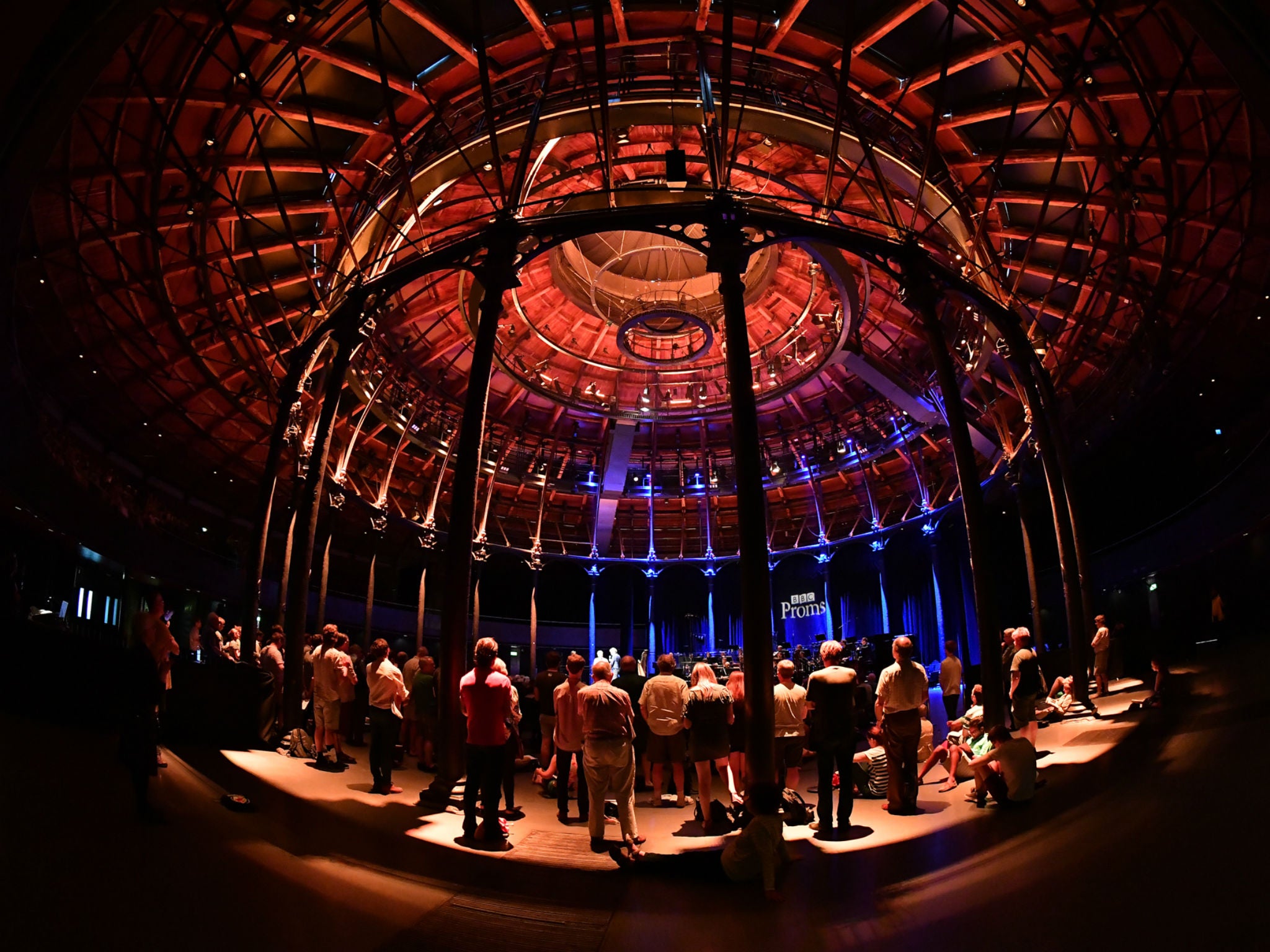Proms at… the Roundhouse, London, review: Canonical works and new commissions commemorate WWI
London Sinfonietta strain every sinew to deliver four demanding new works, as well as three great war memorials in sound from Charles Ives, Stravinsky and Messiaen

Nice to see the Roundhouse pressed into service for the Proms, this time for yet another concert commemorating the end of the First World War. Where would the Proms be without anniversaries to hang them on? They would certainly be different, and might be more interesting.
This concert consists of three great works from the orchestral canon, and four new commissions from composers who strangely don't rate even minimal biographies in the programme book. It’s a fair bet that most in the audience would not have known the work of Georg Friedrich Haas, Hannah Kendall, Isabel Mundry and Luca Francesconi – if indeed they even knew their names. But it’s always the same with the programmes for those Proms that take place outside the Royal Albert Hall: they’re seen as not quite kosher, and corners are cut.
Haas has an ultra-refined ear and a taste for compositional intricacy, and so it was with his new work in which dialogue is drawn from Karl Kraus’s drama of wartime savagery – The Last Days of Mankind. Susan Bickley sings the German words with appropriate fury, but how much more effective they would have been in an English translation; as it is, their visceral power to shock is largely neutralised.
Hannah Kendall’s Verdala, which commemorates the loss at sea of 600 Jamaican soldiers, is equally intricate, with the woodwinds expressing distress and anguish over a sorrowing plucked bass. Isabel Mundry’s Gefallen is the setting of a poem by August Stramm, who was killed in action in 1915; the laconic pathos of the words is poignantly echoed in the wild plaints and abrupt outbursts of the instruments.
Luca Francesconi’s We Wept is a setting of some verses by a female driver-mechanic in 1917, whose emotional power stands in inverse proportion to their brevity: “We wept. Well, do you know, strangely enough/ Because the silence was so awful.” Here the music brings that dread silence chillingly to life, as though the shocked earth were awakening out of a nightmare.
Under George Benjamin’s baton, the London Sinfonietta deals with these demanding new works as though they have had months to prepare; and for the great war memorials in sound which form the backbone of this Prom, they strain every sinew,
Charles Ives’s The Unanswered Question is first posed by an unseen trumpeter in the wings, before the full ensemble gradually takes up the anguished refrain. One can physically feel the grainy textures and grinding dissonances of Stravinsky’s Symphonies of Wind Instruments, while Messiaen’s extraordinary Et exspecto resurrectionem mortuorum beomes a sonic forest through which we are led, by turns deafened and delighted, to the sound of gongs and woodwind and the healing balm of silence.
Subscribe to Independent Premium to bookmark this article
Want to bookmark your favourite articles and stories to read or reference later? Start your Independent Premium subscription today.

Join our commenting forum
Join thought-provoking conversations, follow other Independent readers and see their replies